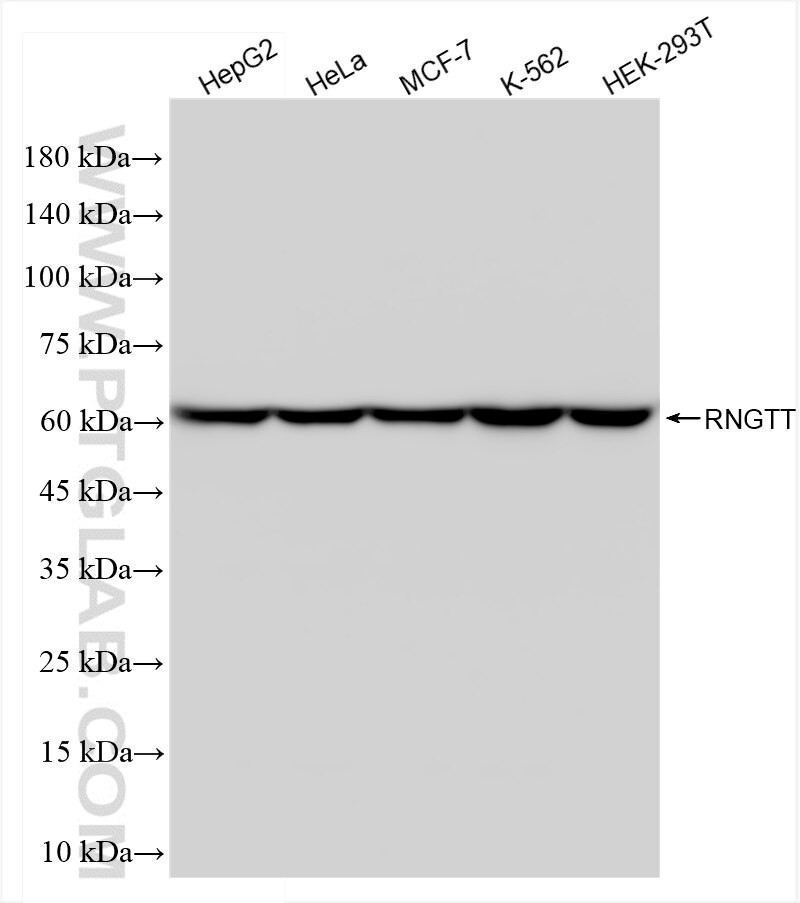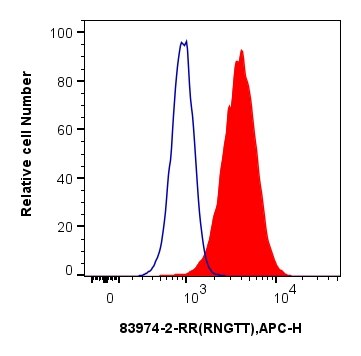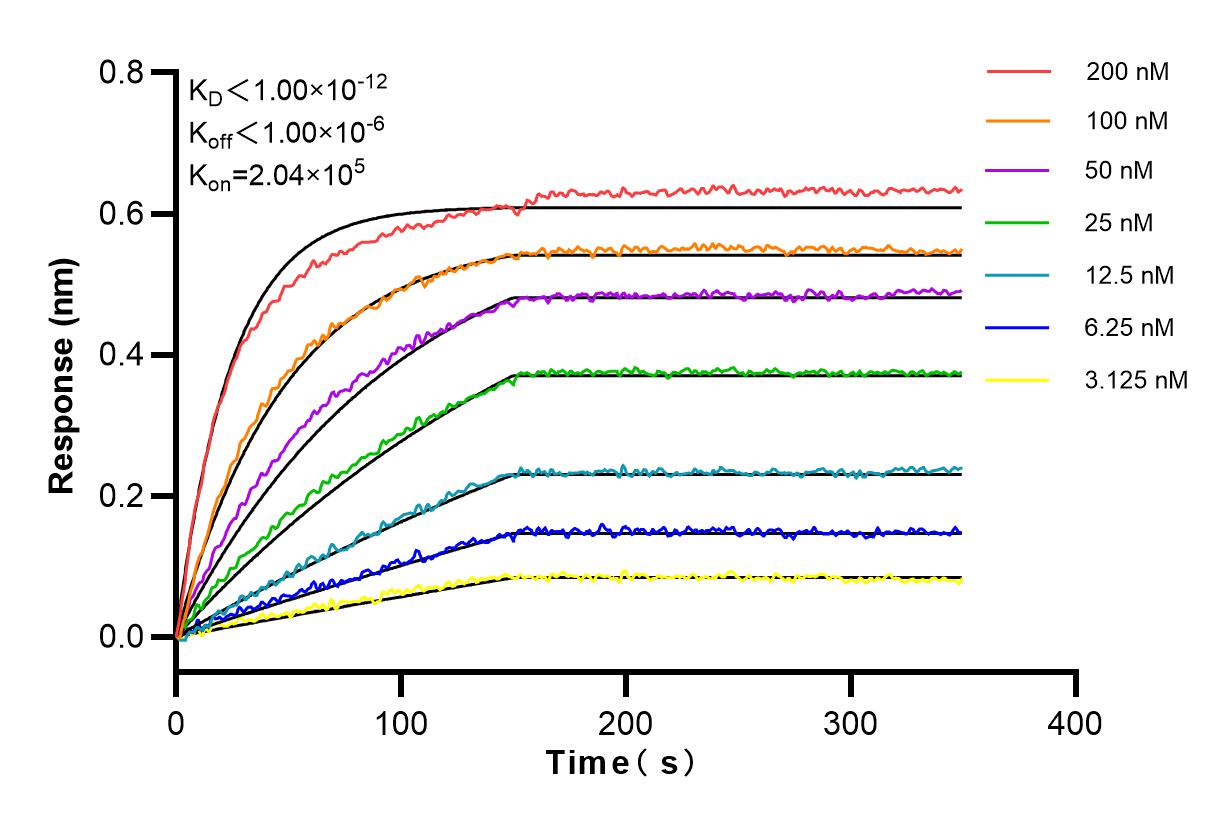Tested Applications
| Positive WB detected in | HepG2 cells, HeLa cells, MCF-7 cells, K-562 cells, HEK-293T cells |
| Positive FC (Intra) detected in | HeLa cells |
Recommended dilution
| Application | Dilution |
|---|---|
| Western Blot (WB) | WB : 1:1000-1:8000 |
| Flow Cytometry (FC) (INTRA) | FC (INTRA) : 0.25 ug per 10^6 cells in a 100 µl suspension |
| It is recommended that this reagent should be titrated in each testing system to obtain optimal results. | |
| Sample-dependent, Check data in validation data gallery. | |
Product Information
83974-2-RR targets RNGTT in WB, FC (Intra), ELISA applications and shows reactivity with human samples.
| Tested Reactivity | human |
| Host / Isotype | Rabbit / IgG |
| Class | Recombinant |
| Type | Antibody |
| Immunogen | RNGTT fusion protein Ag3105 Predict reactive species |
| Full Name | RNA guanylyltransferase and 5'-phosphatase |
| Calculated Molecular Weight | 597 aa, 69 kDa |
| Observed Molecular Weight | 62-68 kDa |
| GenBank Accession Number | BC019954 |
| Gene Symbol | RNGTT |
| Gene ID (NCBI) | 8732 |
| RRID | AB_3671549 |
| Conjugate | Unconjugated |
| Form | Liquid |
| Purification Method | Protein A purification |
| UNIPROT ID | O60942 |
| Storage Buffer | PBS with 0.02% sodium azide and 50% glycerol , pH 7.3 |
| Storage Conditions | Store at -20°C. Stable for one year after shipment. Aliquoting is unnecessary for -20oC storage. 20ul sizes contain 0.1% BSA. |
Background Information
RNGTT(mRNA-capping enzyme) is also named as HCAP1, HCE, CAP1A. In the N-terminal section it belongs to the non-receptor class of the protein-tyrosine phosphatase family and in the C-terminal section it belongs to the eukaryotic GTase family. It is a bifunctional 597-amino acid protein with RNA triphosphatase and RNA guanylyltransferase activities(PMID:9545288). It has 4 isoforms produced by alternative splicing.
Protocols
| Product Specific Protocols | |
|---|---|
| WB protocol for RNGTT antibody 83974-2-RR | Download protocol |
| Standard Protocols | |
|---|---|
| Click here to view our Standard Protocols |







